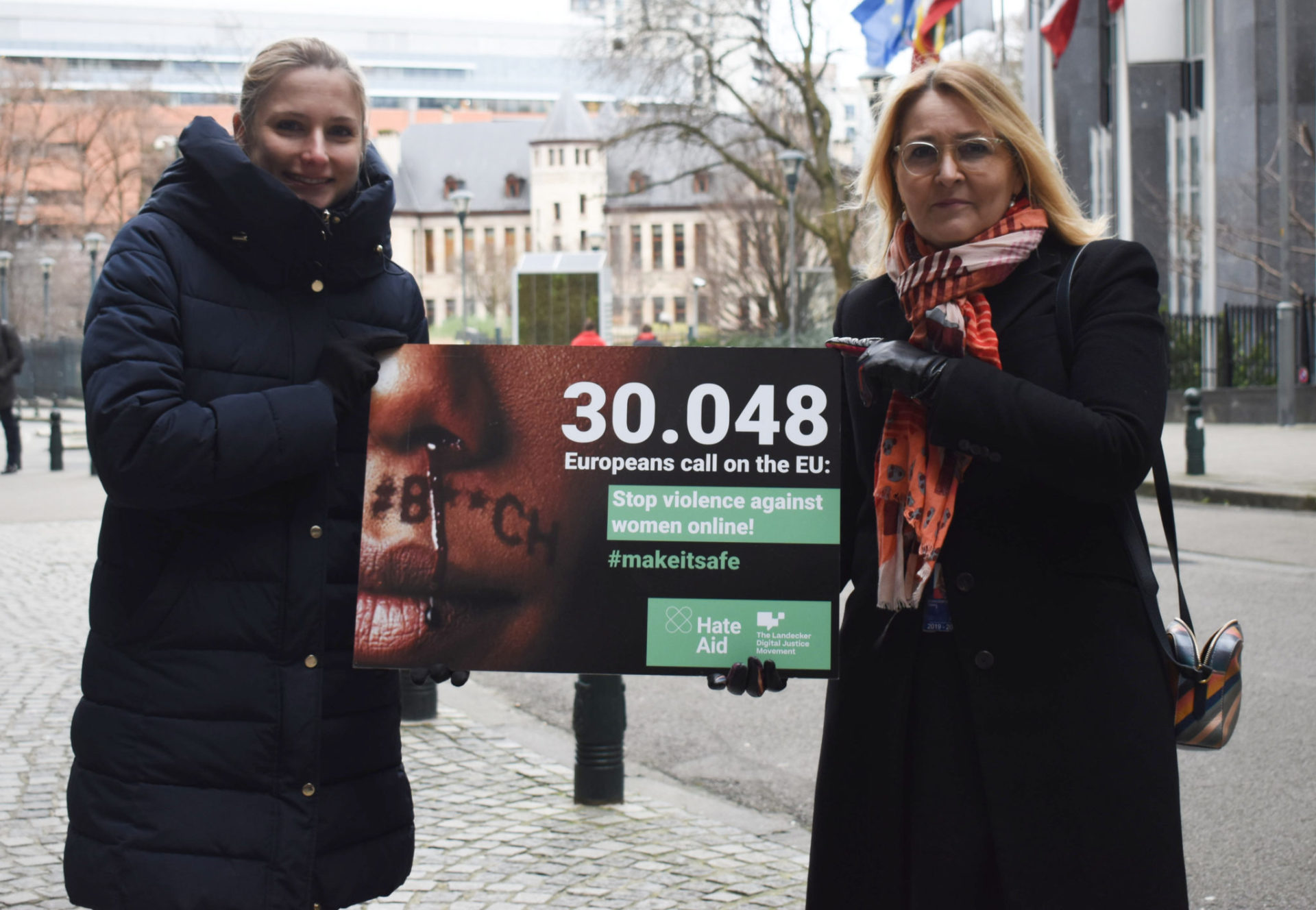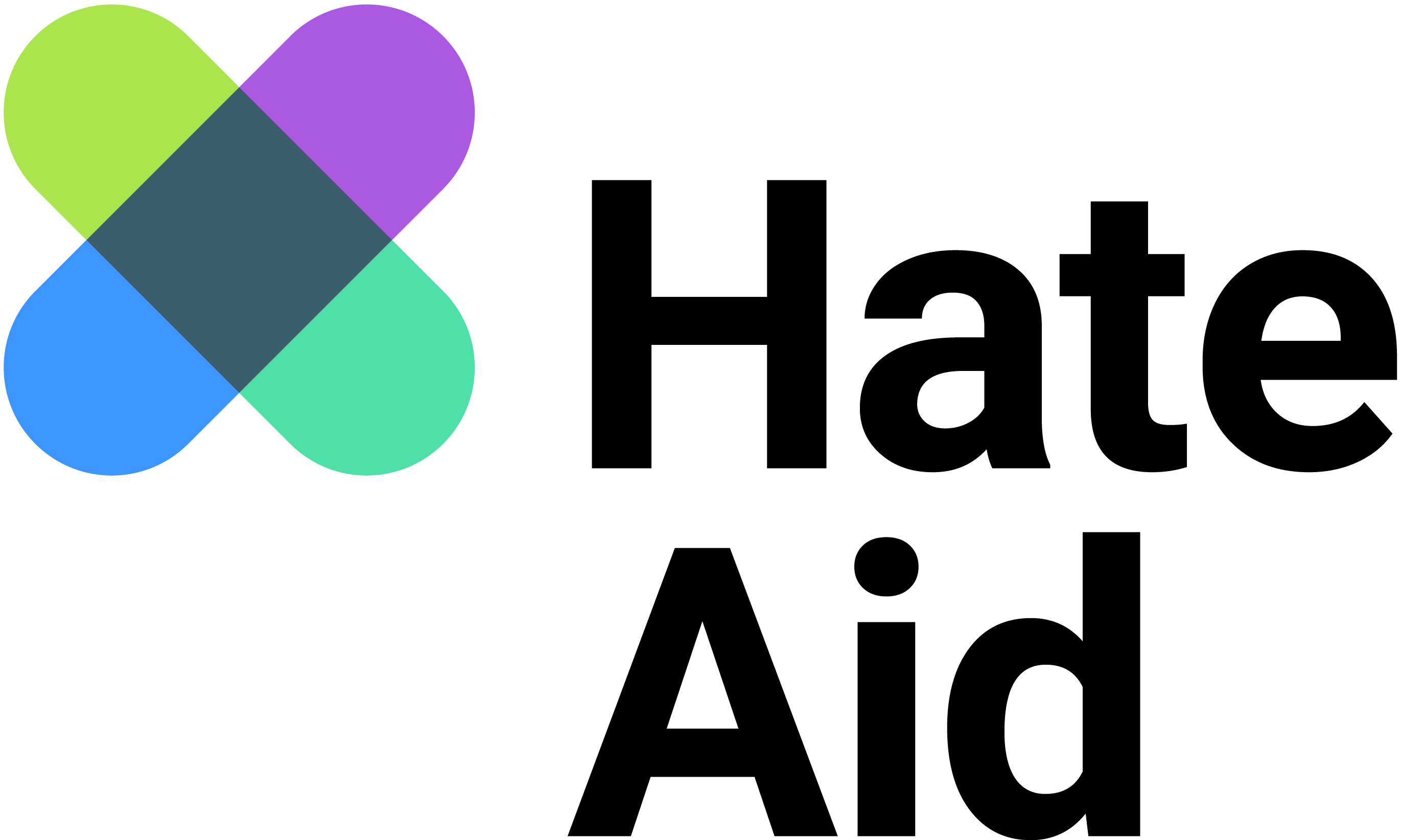Digital Services Act: new rules for the internet
Insults, threats and sexual harassment: every second young woman is the target of digital violence on social media. Facebook, X (Twitter) and online platforms alike have so far done too little to combat hate on their platforms.
With the new EU law, the Digital Services Act (DSA), the EU has ushered in a new era for the basic digital rights of users. Through a petition demanding better protection of women on social media and various actions run together with an alliance of international organisations, HateAid has critically contributed to the legislative process over the past year and given victims of digital violence a voice on the EU political stage.
This is what the new EU law brings:
• All platforms must enable the reporting of content
• Users can complain and request a second review of their reported content
• Users can turn to an out-of-court dispute settlement
• Very large online platforms like YouTube, X (Twitter), or Facebook must disclose algorithms and other internal processes
• Researchers and civil society organisations can gain access to platform data for independent investigations
From Berlin to Brussels: we are advocating for human rights on the internet
Whether through petitions, actions in Brussels, or direct conversations with EU politicians: during the negotiations over the law, we have provided a voice on the political stage of the EU for those affected by digital violence. And we won’t stop there.
Because now it’s crucial for the new rules to be swiftly and consistently enforced. HateAid will closely monitor whether online platforms will adhere to the new law.

Handover of the HateAid petition with over 30,000 signatures in Brussels: Josephine Ballon, CEO at HateAid & Christel Schaldemose, MEP.

Anna-Lena von Hodenberg, Photo: Andrea Heinsohn Photography
“Social networks have provided a platform for the mass spread of hate and agitation. With the Digital Services Act, we have for the first time an EU-wide law that attempts to stand up to Facebook, X (Twitter) and other platforms. We will be watching very closely to see how the social networks implement the new obligations. For us, it’s clear: if the measures don’t bear fruit, we will demand that the EU tighten up on effective protection against digital violence.”
Anna-Lena von Hodenberg, CEO at HateAid
We will continue to advocate for you!
To achieve this, we have set ourselves ambitious goals: with our User Guide, we aim to make the Digital Services Act easily understandable, so that users of social media platforms know how to raise complaints and who can assist them. We will scrutinize the annual reports on the societal risks of these platforms, with a particular focus on risks faced by women and the LGBTIQA+ community. We will engage in dialogue with the new regulatory authorities in the EU and demand the consistent implementation of the DSA.
Boundless hate: dramatic situation across Europe
% of Europeans aged 18 - 35 have already experienced digital violence.
% of women fear that intimate images of them could be published online without their consent.
% of women express their opinions online less often for fear of hate.
Alfred Landecker Foundation
Our commitment to a better Digital Services Act (DSA) is realised through the financial support of the Alfred Landecker Foundation.




